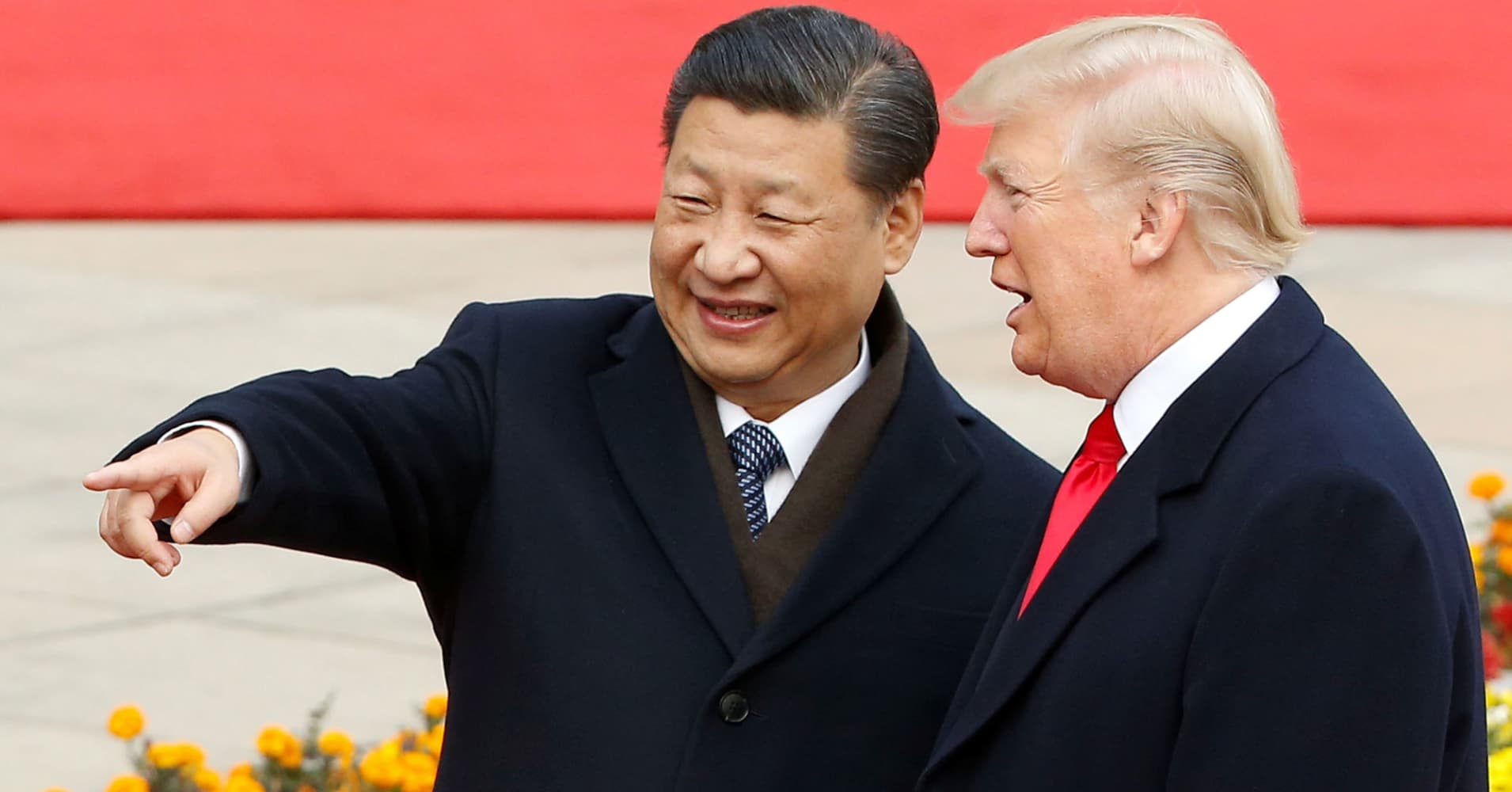
A meeting between U.S. President Donald Trump and Chinese President Xi Jinping is "highly unlikely" to take place by March 1, the deadline the two countries set for reaching a trade deal, according to a senior administration official.
While the leaders of U.S. and China are still expected to meet, and may do so "shortly thereafter," there is currently too much work to do in too little time, both to flesh out a deal with China but also to prepare Trump for a high-stakes meeting with North Korea's Kim Jong Un at the end of February.
White House officials have advised against merging the two issues, despite China's invitation for Xi and Trump to meet immediately following the Kim summit.
The senior administration official, who requested anonymity because they were not authorized to speak publicly about the talks, cautioned that the situation was fluid and that the status of the meeting could change after a trade delegation travels to Beijing next week.
Robert Lighthizer, the U.S. Trade Representative, has said he and Treasury Secretary Steven Mnuchin would make a recommendation to Trump on whether to take a meeting after the two return from the mid-February trip to China. A delegation of U.S. deputies will conduct talks beginning Feb. 11, with Lighthizer and Mnuchin joining later in the week, according to an administration official and a person briefed on the plan.
The question now is what happens to a tranche of tariffs in Chinese goods that is set to double automatically after March 1, in lieu of a presidential order. The likely outcome is that the tariffs remain at the current 10% rate, according to two administration officials and two people briefed by the White House.
The deadline was raised in a Feb. 6 briefing with the Senate Finance Committee. The information Lighthizer provided was "not very definitive," according to Sen. Chuck Grassley, R-Iowa, the committee's chairman.
As part of a broader deal, China is expected to require tariffs to be removed entirely, Lighthizer said. When asked by reporters, Lighthizer declined to say what would happen what would happen if a deal is not reached by the March 1 deadline.
The U.S. may also consider an alternative: A "snap-back," in which certain tariffs are selectively rolled back, but could be reintroduced if China does not follow through, according to three people briefed by the administration.
from Top News & Analysis https://cnb.cx/2BoXeOh
No comments:
Post a Comment